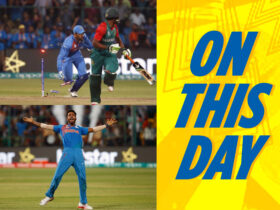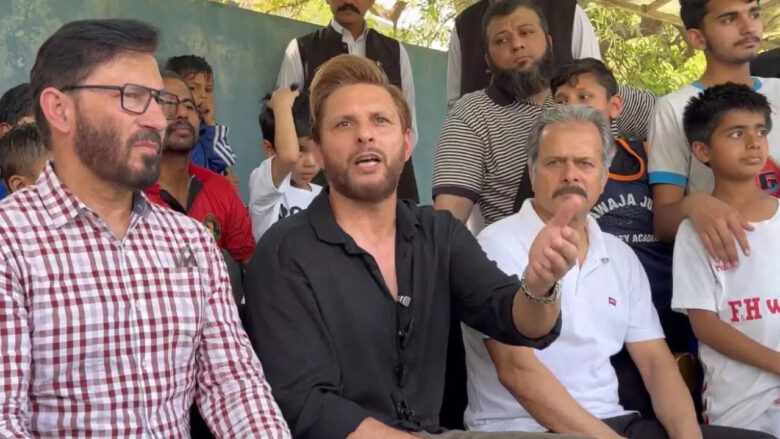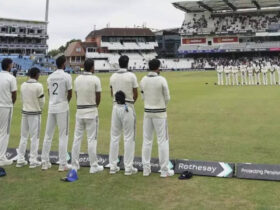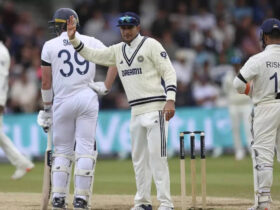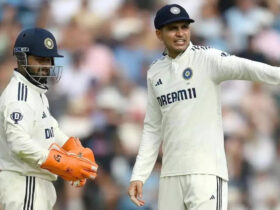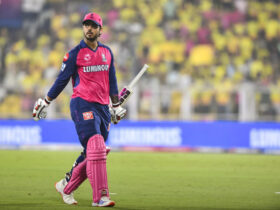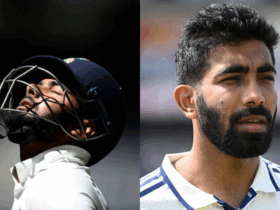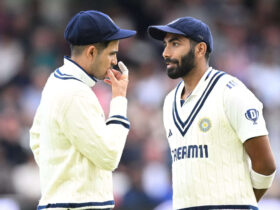Shahid Afridi Slams India Over Pahalgam Attack, Calls for Peace and Sports Diplomacy
In a fiery outburst, former Pakistan cricket captain Shahid Afridi has launched a scathing critique of the Indian government and military following the devastating terror attack in Pahalgam, a picturesque tourist spot in the Kashmir Valley. The brutal incident at Baisaran Meadows on Tuesday claimed the lives of at least 26 individuals, predominantly tourists, plunging the region into mourning and sparking renewed tensions between India and Pakistan.
Afridi, known for his outspoken nature both on and off the field, expressed dismay over what he described as the Indian authorities’ failure to protect their citizens. Speaking to local media in Pakistan, he remarked, ‘The terrorists wreaked havoc in Pahalgam for over an hour, and not a single soldier from the reported 8 lakh-strong Indian forces stationed in Kashmir showed up. Yet, when they finally arrived, their first move was to point fingers at Pakistan.’ His comments underline a recurring narrative of blame-shifting that has long strained Indo-Pak relations.
Delving deeper into his critique, Afridi accused the Indian government of orchestrating internal unrest and deflecting responsibility. ‘India perpetrates acts of terror within its borders, kills its own people, and shamelessly blames Pakistan for it,’ he stated. Such allegations, while not new, echo the sentiments of sections of Pakistani society skeptical of India’s intentions in the disputed region of Kashmir, where violence has simmered for decades. According to official records, over 90,000 lives have been lost in the conflict since 1989, with countless terror attacks targeting civilians and security personnel alike.
Despite his sharp words, Afridi emphasized Pakistan’s commitment to peace, drawing on Islamic teachings as his foundation. ‘No country or religion supports terrorism. Islam teaches us only peace, and Pakistan has always stood against such heinous acts,’ he asserted. He urged for improved bilateral ties, lamenting the missed opportunities for dialogue. ‘We have consistently tried to mend relations with India, but the response has often been hostility,’ he added, reflecting on past diplomatic efforts.
The former all-rounder also highlighted the potential of sports diplomacy to bridge the divide between the two nations. Recalling his tenure as captain during the 2016 T20 World Cup in India, Afridi revealed the uncertainty and threats his team faced before traveling. ‘I had no clarity on whether we would even participate due to the threats we received,’ he shared. He criticized the inconsistent approach to sporting exchanges, noting, ‘India sends their kabaddi team to Pakistan but hesitates to send their cricket team. If you want to sever ties, do it completely, or let sports unite us.’ Cricket, often dubbed a religion in both countries, has historically served as a rare medium of connection, with iconic moments like the 2004 Friendship Series still cherished by fans.
Adding fuel to the controversy, Afridi took aim at the Indian media’s handling of the Pahalgam attack during an interview with Samaa TV. On Saturday, he deplored their sensationalist coverage, quipping, ‘It’s astonishing how, within an hour of the attack, their media turned into Bollywood. For God’s sake, stop making everything a drama.’ He admitted to being both shocked and amused by the narrative, saying, ‘I was stunned, but frankly, I was also enjoying the way they spun their stories.’ His remarks highlight a broader frustration with what he perceives as biased reporting that inflames tensions rather than fosters understanding.
In wrapping up, Shahid Afridi’s comments serve as a reminder of the deep-seated distrust that continues to define Indo-Pak relations, especially in the wake of tragedies like Pahalgam. While his allegations against India are likely to stir debate, his call for peace and the unifying power of sports offers a glimmer of hope. As the cricketing world watches, one can only wonder if the pitches of diplomacy will ever host a match that transcends borders and heals wounds. Will cricket, once again, become the language of peace between these two nations? Only time will tell.


